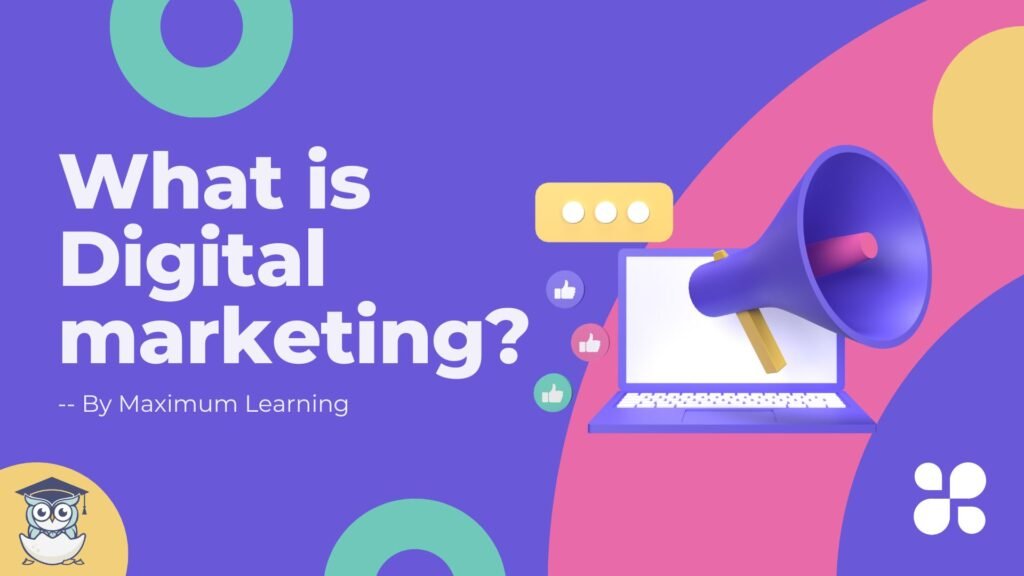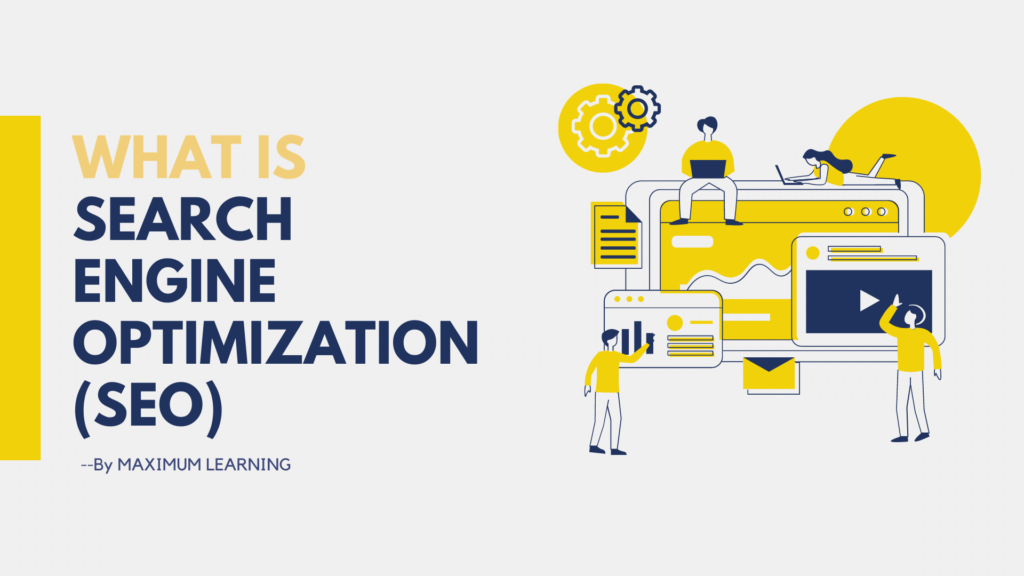In the fast-paced realm of contemporary business, where innovation is the key to staying ahead, the integration of Artificial Intelligence (AI) into marketing automation stands out as a transformative force. This dynamic fusion of cutting-edge technology and strategic marketing has ushered in an era marked by unparalleled efficiency, unprecedented personalization, and a sharp focus on data-driven decision-making. In this blog post, we embark on a journey to unravel the profound role played by AI in marketing automation and explore how businesses can harness this powerful synergy to elevate their marketing strategies. Join us as we delve into the transformative landscape where AI meets marketing, shaping the future of customer engagement and business success.
What is AI Marketing?
AI marketing, also known as artificial intelligence marketing, is a branch of marketing that leverages artificial intelligence (AI) technologies and techniques to enhance and streamline various aspects of marketing strategies and campaigns. AI is applied to analyze data, automate tasks, and make data-driven decisions, ultimately improving the efficiency and effectiveness of marketing efforts. Here are key aspects of AI marketing:
Data Analysis and Insights:
AI in marketing utilizes advanced algorithms to analyze large sets of data. This includes customer behavior, preferences, and historical data to extract meaningful insights. AI can uncover patterns and trends that may be challenging for humans to identify, providing marketers with valuable information for strategic decision-making.
Personalization:
AI enables personalized marketing at scale. By analyzing individual customer data, AI algorithms can create highly targeted and relevant content, offers, and recommendations. This personalization enhances customer experiences, increases engagement, and improves the likelihood of conversion.
Predictive Analytics:
Predictive analytics powered by AI allows marketers to forecast future trends and behaviors. This helps in anticipating customer needs, optimizing marketing strategies, and making proactive decisions to stay ahead of the competition.
Chatbots and Virtual Assistants:
AI-driven chatbots and virtual assistants enhance customer interactions. These intelligent tools can engage with users in real time, answering queries, providing information, and guiding users through the customer journey. This not only improves customer satisfaction but also streamlines communication.
Content Optimization:
AI can optimize content creation and distribution. It analyzes the performance of different content types, channels, and formats to determine the most effective strategies. AI-driven content optimization ensures that marketing messages resonate with the target audience.
Email Marketing Automation:
AI enhances email marketing by automating processes such as segmentation, personalization, and scheduling. It can predict the optimal time to send emails, tailor content based on user behavior, and improve overall email campaign performance.
Dynamic Pricing:
In industries like e-commerce, AI can be used for dynamic pricing. Algorithms analyze market conditions, competitor pricing, and customer behavior to adjust prices in real time, maximizing revenue and competitiveness.
Customer Journey Mapping:
AI helps in mapping and analyzing the customer journey. By understanding how customers interact with a brand across various touchpoints, marketers can optimize campaigns to provide a seamless and engaging experience.
Social Media Listening and Analysis:
AI tools can monitor and analyze social media conversations. This includes sentiment analysis, trend identification, and understanding how the brand is perceived online. Social media insights derived from AI contribute to informed decision-making.
Ad Targeting and Optimization:
AI enhances advertising by optimizing ad targeting. Algorithms analyze user behavior and demographics to target the right audience with personalized ads. AI-driven ad optimization ensures efficient budget allocation and improved ad performance.
What is marketing automation?
Marketing automation refers to the use of technology and software platforms to automate repetitive marketing tasks and workflows, with the goal of improving efficiency, streamlining processes, and delivering more personalized and targeted marketing campaigns. The primary objective of marketing automation is to nurture leads, engage with prospects, and guide them through the sales funnel, ultimately driving conversions and enhancing customer relationships.
Key components and features of marketing automation include:
Lead Generation and Nurturing:
- Marketing automation helps identify and capture leads through various channels such as websites, social media, and email campaigns. Once leads are captured, automated workflows nurture them with targeted content and communications to move them closer to making a purchase.
Email Marketing Automation:
- Automated email campaigns can be set up to deliver personalized and timely messages to different segments of the audience. This includes welcome emails, follow-ups, and triggered responses based on user interactions.
Customer Segmentation:
- Marketing automation tools allow businesses to categorize their audience into different segments based on demographics, behavior, and other criteria. This segmentation enables more targeted and relevant communication.
Social Media Management:
- Automation can be applied to schedule and publish social media posts, track engagement, and analyze social media performance. Some platforms also allow for automated responses to social media interactions.
Analytics and Reporting:
- Marketing automation platforms provide analytics and reporting features to measure the performance of campaigns. Marketers can track key metrics, analyze user behavior, and gain insights into the effectiveness of their marketing strategies.
Lead Scoring:
- Lead scoring involves assigning a value to leads based on their behavior and engagement. Marketing automation tools can automate the lead-scoring process, ensuring that sales teams focus on leads that are more likely to convert.
Workflow Automation:
- Automated workflows streamline complex marketing processes by triggering actions and responses based on predefined conditions. This includes moving leads through the sales funnel, assigning tasks to team members, and adjusting marketing strategies based on performance data.
Personalization:
- Marketing automation enables the delivery of personalized content and experiences to individuals based on their preferences, behavior, and interactions with the brand. This personalization enhances engagement and builds stronger connections with the audience.
How is AI Driving Marketing Automation?
Artificial Intelligence serves as the driving force behind marketing automation by introducing unparalleled efficiency, precision, and scalability. Machine learning algorithms analyze vast datasets in real time, providing marketers with invaluable insights into customer behavior, preferences, and market trends. This data-driven approach enhances decision-making processes, enabling marketers to tailor their strategies with unprecedented accuracy.
Why Marketers Should Use AI in Marketing Automation?
The benefits of incorporating AI into marketing automation are multifaceted. Firstly, AI enables data-driven decision-making, allowing marketers to move beyond intuition and base strategies on concrete insights. Secondly, AI-powered automation enhances personalization, enabling marketers to deliver highly targeted content to specific audience segments. Lastly, AI-driven marketing automation optimizes resource allocation, ensuring that efforts are focused on high-value tasks and maximizing overall efficiency.
Ways to Use AI in Marketing Automation
Predictive Analytics for Customer Insights:
- Leverage AI to analyze historical data and predict future customer behavior. This enables personalized content delivery, optimized engagement, and more effective lead nurturing.
Chatbots for Interactive Engagement:
- Integrate AI-powered chatbots to engage with website visitors, answer queries, and guide users through the sales funnel. This 24/7 virtual assistance enhances user experience and contributes to lead generation.
Dynamic Content Optimization:
- Use AI algorithms to optimize content delivery based on real-time user behavior. This ensures that marketing messages are always relevant and impactful, increasing the chances of conversion.
Successfully Implementing AI in Marketing Automation
Define Clear Objectives:
- Clearly outline the goals you want to achieve with AI-driven marketing automation, whether it’s improving lead conversion rates, enhancing customer engagement, or optimizing resource allocation.
Choose the Right Tools:
- Select AI-powered marketing automation tools that align with your objectives and integrate seamlessly with your existing systems. Consider factors such as scalability, ease of use, and compatibility.
Invest in Training:
- Ensure that your marketing team is well-versed in leveraging AI tools. Providing training and resources will empower them to make the most of AI-driven automation in their day-to-day activities.
Iterative Approach:
- Implement AI in stages, allowing for continuous evaluation and refinement. This iterative approach ensures that adjustments can be made based on real-world performance and evolving business needs.
One of the key catalysts driving this evolution is the integration of Artificial Intelligence (AI) into marketing automation. The amalgamation of these two powerful forces has given rise to a new era of efficiency, personalization, and data-driven decision-making in the realm of marketing. Let’s delve into the profound role of AI in marketing automation and how businesses can leverage this synergy to elevate their marketing strategies.
Data-Driven Decision Making:
AI thrives on data, and in marketing, data is king. Marketing automation platforms empowered by AI can process vast amounts of data in real time, extracting meaningful insights and patterns. This data-driven approach enables marketers to make informed decisions, identify trends, and understand customer behavior with unprecedented precision. From customer preferences to market trends, AI-driven marketing automation transforms raw data into actionable intelligence.
Personalization at Scale:
Gone are the days of generic marketing messages. AI-powered marketing automation allows businesses to deliver highly personalized content to their target audience at scale. By analyzing customer data, AI algorithms can predict individual preferences, purchasing behavior, and even the optimal timing for engagement. This level of personalization not only enhances customer experience but also increases the likelihood of conversion, as customers receive content that resonates with their specific needs and interests.
Predictive Analytics for Lead Scoring:
Lead scoring is a critical aspect of marketing, helping prioritize and allocate resources efficiently. AI-driven marketing automation takes lead scoring to the next level by employing predictive analytics. Machine learning algorithms analyze historical data to predict which leads are more likely to convert, allowing marketers to focus their efforts on high-value prospects. This proactive approach enhances lead nurturing and significantly improves conversion rates.
Chatbots and Conversational Marketing:
AI-powered chatbots have become indispensable tools in the world of marketing automation. These intelligent virtual assistants can engage with website visitors, answer queries, and guide users through the sales funnel. By leveraging natural language processing (NLP) and machine learning, chatbots offer a personalized and interactive experience, contributing to increased customer satisfaction and lead generation. They operate 24/7, ensuring a constant connection with the audience.
Dynamic Content Optimization:
Creating compelling content is only half the battle; delivering it at the right time is equally crucial. AI in marketing automation optimizes content delivery based on user behavior and preferences. Whether it’s email marketing, social media, or website content, AI algorithms analyze engagement data to determine the most effective content variations for different segments of the audience. This dynamic optimization ensures that marketing messages are always relevant and impactful.
The integration of Artificial Intelligence into marketing automation represents a paradigm shift in the way businesses connect with their audience. By harnessing the power of AI for data analysis, personalization, predictive analytics, and interactive engagement, marketers can unlock new levels of efficiency and effectiveness. As the digital landscape continues to evolve, embracing AI in marketing automation is not just a strategic advantage—it’s a necessity for those seeking to thrive in the competitive world of modern business. The journey towards a more intelligent, automated, and customer-centric marketing approach has begun, and those who embark on it now will undoubtedly shape the future of marketing.



